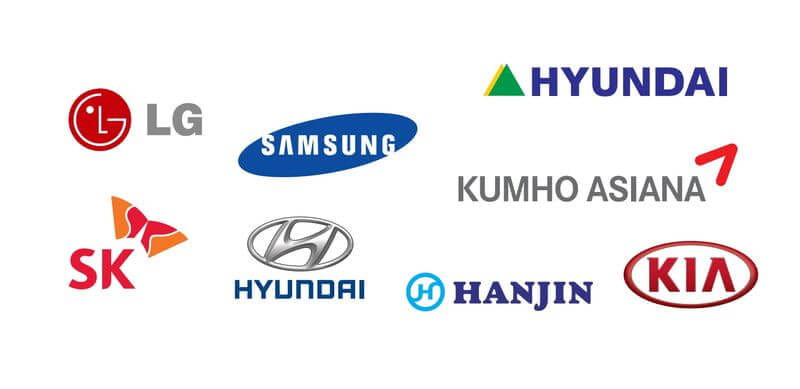The importance of the Korean language goes far beyond the apparent clichés Kpop, Kdrama, Kmovie, Kimchi, and K-beauty!
Korean is way more helpful than just diving deep into Hallyu. The language offers vast job potential in a variety of fields.
There was a time when most people fancied learning a new language for pleasure, traveling, and hobbies. Today, in the age of globalization, you can find plenty of career avenues.
Korean isn’t the first choice for career preferences. In fact, most pick because the cultural aspects of Korea fascinate them.
TABLE OF CONTENTS
- Why Korean as a career of all choices?
- 16 Super Cool Jobs for Korean learners
- 1. Career as a Korean translator
- 2. Korean interpreter jobs
- 3. Jobs in Korean companies
- 4. Career as a Korean Teacher
- 5. Jobs in MNC
- 6. Export houses and business
- 7. Jobs at Korean Embassy
- 8. Tourism and hospitality industry
- 9. Aviation industry
- 10. Teach English in South Korea
- 11. Content writer and editors
- 12. You can make money by blogging
- 13. Korean YouTuber
- Final Words
Why Korean as a career of all choices?
Like many other languages, Korean is a great language to work in if you want to visit, live, or study in Korea.
Or fancy working as a language professional anywhere in the world.
But, what is unique about that? Isn’t the same is possible with many other languages that you wrote yourself on your different blogs?
True. But two reasons make it a unique and awe-inspiring experience — less competition and colorful cultural characteristics.

Higher Korean skills guarantee you have a unique edge in the employment market. That is because the competition is less for specialized and well-paid positions.
Just look around yourself!
How many speak good French, Spanish, and German?
And in contrast, how many can hold 5-minute simple conversations with a native Korean speaker?
Most people learn some beginner Korean for their love for K-Pop and K-Drama. But, in the end, very few achieve any meaningful competency level.
As per my personal interactions with many Korean learners, most choose Korean, like Italian, for cultural aspects. The “Korean wave” has stimulated the number of learners globally.
So, while you’re at it, why not combine it with better career prospects involving Korean?
Your love towards BTS and BlackPink may fade away one day like I seldom listen to Backstreet Boys and Enrique Iglesias’ songs anymore. But, in all this, you might make a career in Korean. I did the same.
An alignment between your interest and job can help you persevere and climb through whatever difficulties it carries.
To sum up, you can turn your passion into an incredible career.
16 Super Cool Jobs for Korean learners
South Korea is one of the world’s economic powerhouses and attracts many tourists and international companies every year. It is the sixth-largest exporter and the seventh-largest trading partner of the USA.
The country has slowly opened its doors to the outside world. In parallel, Korean companies are on an expansion spree across the globe.
If you are in the mood for adventure, learning Korean and making it your make-up is an excellent idea — for that.

1. Career as a Korean translator
The translator profession is the most sought-after career in Korean. This is because of ample monetary benefits, rising scope, and flexible working hours.
As a translator, you change the written text from the source language into the target language by writing, analyzing, and editing.
It takes a few years to become a translator. But, it takes several years for success and authority in fields like financial, medical, legal, technical, and literary.
If you are more interested in literature, you can translate literary works from foreign languages.
Plus, there is a growing market for the conversion of self-help, science, research, and management books. Publishing jobs are also available.
The translation is an essential part of most organizations’ business communications. It is helpful for live events, meetings, conferences, or documentation.
There are many translation agencies and service providers who engage people with good Korean proficiency.
2. Korean interpreter jobs
If you are learning Korean, it’s difficult to imagine a career as an interpreter. But if you dream big and work hard, this dream can come true.
Translators deal with written information, whereas Interpretation focuses on spoken words.
Interpretation is more complex as one has to know what someone is saying in their language. And then, one has to tell everything in another language different from the original speaker’s.
A skilled interpreter is always in high demand. They earn pretty well for their expertise, experience, and specialization.
There is only one caveat. You need to be fluent in Korean like natives along with one more language. There is no place for incompetence, sloppiness, and mediocrity.
3. Jobs in Korean companies
Suppose you’re already working or aim to work for a Korean company. In that case, it will be easier for you to speak Korean as there will be more Korean-speaking employees around you.
The big Korean companies such as LG, Samsung, POSCO, Hyundai, Lotte, Kia, and many more have global footprints. Plus, there are hundreds of mid-sized companies where you can work as a bilingual employer.

As a bonus, your Korean knowledge will also improve at work. This turns into more perks and promotions for you.
This will be a crucial factor in the recruitment process, no matter what job you apply for.
If a company does not hire you in English, they are more likely to value your Korean abilities. Although Korean skills will not work if you are competing with someone for a job who does not speak Korean.
4. Career as a Korean Teacher
Your knowledge of Korean can help you land excellent tutoring and teaching jobs worldwide.
(i) Teaching jobs in Schools
Because of rising demand and bilateral relations, Korean as a subject is available in several schools. This includes countries like the USA, Canada, Japan, France, New Zealand, Australia, Malaysia, Turkey, Indonesia, the Philippines, Thailand, to name a few.
In 2020, the Indian government also introduced Korean as one of the foreign languages taught at the secondary school level. Many schools teach as a second or third language or as an elective subject.
If you hold a good command of the language and other requirements like at least a bachelor’s degree and B. Ed, you can apply as a Korean teacher in the school.
The job openings in this profession are plenty—across the world.

(ii) Colleges and private institutes
The number of students taking up Korean courses in recent years has soared.
As more and more people are learning Korean, the newspaper ads sections and job portals are often awash with openings for a Korean teacher.
The growing demand has resulted in hundreds of language schools and colleges seeking Korean educators to impart Korean teaching.
In short, if you have solid expertise in Korean, along with teaching skills and experience, you’ll be in demand.
You may need certification like the TOPIK exam or a university degree.
(iii) Online Korean Tutors
In the last few years, especially after the spread of COVID-19 in early 2020, we have seen online language programs have continued to grow and expand.
Because of time constraints, e-learning has become an alternative means of continuing education.
You can choose your own hours for each session – you can work from anywhere, anytime.
All you need is a laptop, internet, headphone, and webcam, which everyone has these days.
5. Jobs in MNC
Many prominent MNCs have interests and clients all over the world, including South Korea.

To deal with Korean businesses and people, they need candidates who can communicate with them. Thus, these MNCs look for Korean language specialists for various work, both in the IT and non-IT sectors.
There are also many openings in the BPO and KPO sectors. This involves inbound, outbound, voice, email, and chat support services across various business verticals.
Organizations have moved many jobs to different countries because of ITES, outsourcing, and offshoring.
This all has paved the way for learning foreign languages, such as Korean.
6. Export houses and business
Do you have an interest in the automobile, consumer goods, education, electronics, fashion, semiconductors, shipbuilding, steel, textile, etc.?
In that case, learning Korean is an effort that deepens your career choices.
In international sales marketing, foreign language skills are an added advantage. A global sales marketer’s job is challenging because it involves dealing with B2B businesses.
You can use your Korean skills to become a persuasive salesperson to negotiate with cross-border businesses.
Not only you’ll have plenty of chances to travel abroad. But the salary for an international sales manager is usually generous too.
7. Jobs at Korean Embassy
Among language learners, embassy jobs are the most in-demand. And the reasons are self-evident.
Embassies pay well, and it’s always worth cherishing the prestige of working for a foreign embassy like South Korea.
There are a variety of jobs at the embassy, consulates, and diplomatic offices. This comprises translators, interpreters, analysts, librarians, human resources, market researchers, social media managers, and various social, finance, and economy departments.
You can also work as a customer support executive, IT professional, administrative specialists in logistics, Korean instructors at their cultural center like King Sejong Institute.
Not all positions need a Korean ability test score. Still, your Korean skill can strengthen your job prospect.
8. Tourism and hospitality industry
If you speak Korean, you can find many job openings in the broad domain of travel and tourism. There are many options here. Let’s find out more.

(i) Linguistic tour guide
If you are looking for work that allows you to meet new people, travel, and hone your Korean skills, there is no better job than a linguist tour guide.
Korean visitors are always looking for bilingual guides and translators who speak Korean fluently. A career in the travel and hospitality industry is full of fun yet challenging.
After learning Korean, you can consider a linguist tour guide.
First, you need to take the test to get a license. After that, you can work across the entire leisure, hotel, travel, and hospitality industry as a tour guide.
(ii) Hotel and travel industry
The tourism and hospitality industries place a high value on multilingualism.
Korean language skills can assist Korean customers (travelers) and provide outstanding and tailor-made services.
The Korean business community and tourists travel widely around the world.
If you wish to work in travel agencies, visitor information centers, support departments, hotels & resorts in the private and government sectors. Then, Korean can be an asset to your C.V.
9. Aviation industry
While English is the common language in the aviation industry, there are still some openings where your Korean can boost your chances.
For example, an airline company shuffling between the USA and South Korea would prefer someone who can speak Korean.
Employees in the airline industry respond to emergencies and perform everyday duties to ensure the safety of airline passengers.
That’s why many airline companies look for flight attendants and ground staff who can speak Korean.
There are also jobs for customer support, airfare & ticketing staff, pilots, transport officer, logistics, immigration officers, etc.
These are some aviation-specific jobs where Korean learners can reap big.
10. Teach English in South Korea
Do you have a flair for teaching?
Are you a skilled teacher who speaks excellent English and some Korean?
Well, you can work as an English teacher in South Korea — an ideal and one of the best destinations for ESL (English as a Second Language).

You can apply to various government programs like EPIK, TaLK, GEPIK, SMOE, and GOE that operate under the Korean Ministry of Education.
You can also teach at private schools (Hagwon), colleges, and universities.
From a lifetime opportunity to discover Korea to improve your professional experience, you get many advantages. And if that’s not all, you can make some good money too.
To teach English in South Korea, you need at least a Bachelor’s degree in English and certification like TESOL, TEFL, or CELTA. They prefer Native English speakers though Indians are also eligible to apply.
The salary varies from 1,800 to 3,000 USD monthly according to your profile, location, and educational organization. You also get perks depending on the contract and performance.
You can work as an ESL teacher there without speaking Korean. But your experience won’t be the same.
Your Korean language ability can make your stay more comfortable and help you more genuine interaction with natives. You also have a better chance of getting hired.
11. Content writer and editors
It is never out of style to be a writer in the ever-growing digital world. This has led to content writers being in demand, whether at startups or large multinational companies.
Suppose you’re an expert in the Korean language, creative thinker, and maintain fantastic writing skills.
In that case, you have infinite career opportunities after learning Korean.
Thanks to recent technological advancements and the increase of new websites, the demand for Korean writers has increased manifold.
Most companies that deal with Korea or Korean products and services are looking for content writers and editors who are fluent in Korean.
As a Korean writer, your job is to create unique content after proper research within deadlines. Sometimes, you rewrite the existing one to improve the flow, style, quality, and points.
You can either work as a full-time employee or work from home as a freelance writer.
12. You can make money by blogging
Do you have a knack for writing and a good understanding of Korea and its associated things?
In that situation, you can make your career as a freelancer blogger.

From Korean teaching and lifestyle to food and Hallyu to travel and merchandise coverage, you have plenty of topics to cover.
There are three obvious benefits of blogging.
First, you’ll be doing what you really love, i.e., making content related to Korea and the Korean language.
Second, this will enable you to work from anywhere, anytime, and the way you wish.
Finally, you can make good money.
You can earn money by placing advertisements on your blog, sponsored reviews, and affiliate links. The list is pretty endless! You can also sell courses and promote 3rd party products and services.
As a Korean language professional, the blog gives you a medium for your passion for this language, and you also earn some cash.
But as with everything, the road towards success is an uphill task.
You need a large audience with unique and high-quality content. For bloggers, to see any great returns can take two to three years.
But once you achieve that, a world of vivid opportunities opens up for you.
13. Korean YouTuber
Having a YouTube channel is another option for those who aren’t camera-shy.
YouTube has become an unquestioned king of online video. It is an outlet for people worldwide to express their creativity and make money by creating media content.
But how to make money?
As a Korean YouTuber, you can teach Korean to your audience and cover various cultural features of Korea. You can also make “how-to” and tutorial videos and sell products or services.
You can also make money through advertisements, promotion, and affiliate marketing.
The amount of money you can make per video depends on many factors, like the total number of views and Google ads displayed throughout the videos.
To make this happen, you need huge visitors and need to add regular videos. You also need patience, as success doesn’t come quickly because of immense competition.
Start as part-time work, and once you get a meaningful return, you can consider a full-time career.
Final Words

In this ever-growing globalized market, studying a new language can increase your odds of landing profitable jobs. This is more beneficial if it is a less-talked East Asia language like Korean.
If you know Korean, you will earn respect, open the door to authentic interaction and connection, and in all that, enjoy yourself to the fullest.
Do you plan to live in Korea, work as a language expert, or combine your existing academic skills and experience with the Korean language?
Whatever may be your reason. It is worth investing your time to study Korean.
The career scope requiring Korean is immense and can open a world of successful job opportunities.
Now that you know the real benefit of learning Korean, now is the best time to do it.
You can leave a comment if you have questions or you would like to add anything to the topic.












Hi I’m 21 and my grad background is HR but I’m really not interested in it and I want to build a career as a Korean interpreter and translator. Is it too late to start learning? And is it difficult to find job opportunities for the same?
Thanks
It’s never too late to learn a new language. You can find job opportunities depending on your engagement with the language and long-term planning.
Hello sir, Actually this time I’m learning Korean but when I am searching Korean-related jobs in MNC then all companies are asking for experience. What can we do in this situation becoz in this case, we have freshers? So how can be we get the job?
Most good jobs require some experience, and this is true for all languages and fields. You can look for entry-level employment in any organization and, at the same time, improve your skills by achieving an advanced level in Korean.
Yes, you can get admission in South Korea. But there are two caveats: (i) You have to repeat your bachelor program, (ii) And there are only 2-3 Indian Universities that offer BA in Korean through an entrance test. If you want to make a career in Korean, you can also learn through private institutes and take the TOPIK exam to gain international certification.
Can you tell me the procedure for becoming a professional korean translator and also for interpreter!! ( As an Indian )
Achieved advanced proficiency like TOPIK level 1 or Masters in Korean, then you can explore translation jobs. With experience, more fluency, and confidence, you can work as a Korean interpreter.
If I get a job in South Korea with B.A. and M.A. in Korean language or I find a job in South Korea’s entertainment companies with this?
The Korean language alone is not enough to get a job in Korea. You need other skills/qualifications and some relevant experience.
I am completed my bachelor’s degree in B.A. program and now I want to M.A. in Korean Language and Literature. Is it a good idea? The Korean Language is difficult? Because I don’t know anything about Korean language.
You can’t do a Master’s in Korean directly. For that, you need a BA in Korean or knowledge similar to that to crack the entrance test. While Korean is a complex language, if you have time, patience, and interest, you can surely achieve advanced skills and make a career.
Sir, you have explained everything very well, I am thinking of doing BA in the Korean language, but questions like – Is it sufficient to get a good job? Should I do anything else apart from this? Do I have a job guarantee? It confused me, but I’m still going for it, and your information is giving me confidence about my future career thank you so much.
You can very well do a BA in Korean, and that can help you help you get a job related to that. However, considering the number of Korean learners out there these days, it would be better to diversify your career path by combining any other field.
Can I get a job as a Korean hair stylish dresser?
Don’t know about that.
Sir, Can I do a Korean language teacher job with these degrees, BA or MA? Which type of skills are needed? Please reply sir. Is a bachelor’s in Korean a good career for us?
Yes, you can, but it will be better to aim for MA, if possible. It will help if you have a knack for teaching ability and Korean skills to make a career as a Korean educator. If you wish to work in school, some institutions might ask for a B.Ed degree.
Sir, I want to take MSc in Clinical Oncology in Korea. Can I get a job there if I study this? Which is the best college to study it?
I am not sure about the best College for aforementioned field. You can do some research.
I’m currently pursuing masters in English literature and completed my graduation in the same subject, I’m learning Korean on my own. What are the range of jobs I should focus onto? I’m confused about what I want to do but I want to work in S.Korea. Any advice for me?
For foreigners, especially from English-speaking countries, Teaching English as a foreign language is an appropriate opportunity. There ae many other jobs but you need job offers and sponsorship, which isn’t easy.
Hello sir, currently I am in B.COM 3rd year the things is, can I get a job after my bachelor’s degree with Korean language skills or I have to have master’s degree.
I want to increase my Korean language skills. Is that ok if I can really get a job after my bachelor’s degree?
You can get a job without a masters if your Korean language skills are really good. In most cases, you require authentic certification that certifies your language ability.
Hi there,
Can i get any job in Korea after complete a korean language course there? If yes, how long has the course to be? Maybe after korean course to teach english possible as a non-native english speaker? (Me: come from Hungary-EU, 34 yo, with master degree in law, 3 year legal work experience)
If you are a native English speaker, you can look for jobs for ESL (English as second language). However, you don’t necessarily need to stay there, you can even apply from anywhere.